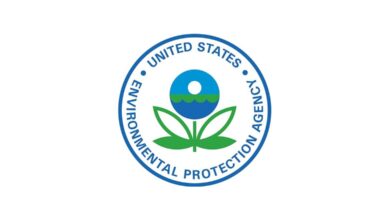US Motor Safety Association Proposes Rule for drug, alcohol Results database
In February, the US Federal Motor Carrier Safety Association (FMCSA) proposed a rule to establish a drug and alcohol clearinghouse for all national commercial driver’s license (CDL) holders. Essentially, this would establish a database under the agency’s administration that would contain drug and alcohol test result information for all holders of CDLs.
The proposed rule would require FMCSA-regulated motor carrier employers, medical review officers (MROs), substance abuse professionals (SAPs) and consortia/third-party administrators (C/TPAs) supporting US Department of Transportation (DOT) testing programs to report the following:
• Verified positive, adulterated and substituted drug test results;
• Positive alcohol test results;
• Test refusals;
• Negative return-to-duty test results;
• Completion of a substance abuse program; and
• Information on follow-up testing.
The proposed rule would also require employers to report actual knowledge of traffic citations for driving a commercial motor vehicle while under the influence of alcohol or drugs. It would require laboratories that provide FMCSA-regulated motor carrier employers with DOT drug testing services to report annual summary information about their testing activities.
Each CDL holder would need to provide consent before an employer could access the clearinghouse. Drivers who refuse could still be employed but could not occupy safety-sensitive positions, such as operation of a CMV.
Click here for a summary of the FMCSA proposed rule.
US Department of Labor/OSHA extend employers’ responsibility for crane, derrick operators
On 9 August 2010, the US Department of Labor/OSHA issued a final standard establishing requirements for cranes and derricks used in construction. The standard requires employers to ensure that crane operators on construction sites are certified by 10 November 2014. Until that date, employers must ensure that operators are competent to safely operate a crane.
After the standard was issued, a number of parties informed OSHA of serious problems and limitations associated with the crane operator certification, namely that it would not guarantee sufficient safety on construction sites. OSHA will address these problems through separate possible rulemaking on operator qualification.
To ensure safe operation of cranes beyond November 2014, the agency is extending the existing employer responsibility to ensure crane operator competency by three years, until November 2017. The enforcement date for operators to be certified will also be extended by three years.
Click here to access the announcement in the Unified Agenda.
CDL licensees still required to retain medical certificates
The Federal Motor Carrier Safety Administration (FMCSA) issued its initial Final Rule on medical records in anticipation of state programs expected to be in place by 30 January 2014. A rule that had a deadline of 30 January 2014 would have allowed interstate commercial driver’s license (CDL) drivers to leave their medical cards at home once their medical certification status was entered into their driving records. The FMCSA is delaying that deadline until 30 January 2015.
Because the state programs are still being worked through, the FMCSA issued a Final Rule in the 14 January Federal Register amending its regulations to stay in effect until 30 January 2015. Interstate drivers who are subject to CDLs or commercial learner’s permit regulations and federal physical qualification requirements must retain paper copies of their medical examiner’s certificate when operating a commercial vehicle.
The delay gives state licensing agencies more time to process certification information from their CDL licensees, as required under the rule. In addition, interstate motor carriers are required to retain copies of their drivers’ medical certificates in their driver qualification files.
API issues 2014 plan for expected publications
API recently issued the 2014 Standards Plan, highlighting documents expected to be published in 2014 and those that are currently in the editorial process.
A sample of items that may be of interest to IADC members include the following:
• RP 505, Recommended Practice for Classification of Locations for Electrical Installations at Petroleum Facilities Classified as Class I, Zone 0, Zone 1 and Zone 2, 2nd Edition, expected to be published in 2014;
• API 510 Pressure Vessel Inspection Code: Maintenance Inspection, Rating, Repair and Alteration, 10th Edition, currently in the editorial process and expected to be published in 2014; and
• Specification 7-2, Specification for Threading and Gauging of Rotary Shouldered Thread Connections, 2nd Edition, expected to be published in 2014.
Click here to access the API 2014 Standards Plan.




